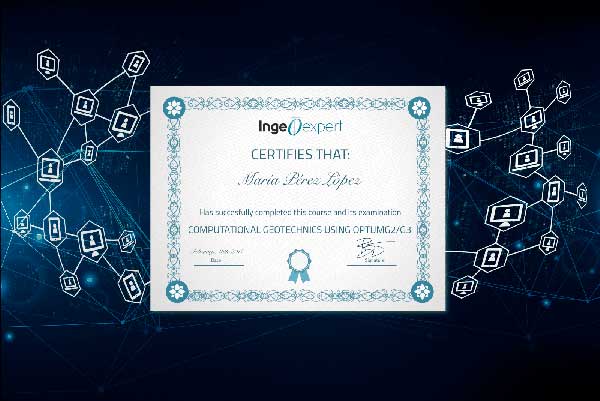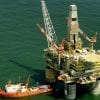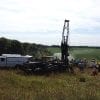Seepage Analysis with Seep/W software
Online course |
|
50 hours / 6 weeks |
|
Dates: to be determined |
Get access to our job listing after finishing the course
Introduction
Soil and rocks generally consist of three phases: solid particles, liquid water and gaseous air. Existence of water in soils makes geotechnical issue much more complicated and performing precise seepage analysis is a critical step to the success of geotechnical engineering projects. Karl Terzaghi once wrote: “in engineering practice, difficulties with soils are almost exclusively due not to the soils themselves, but to the water contained in their voids. On the planet without any water, there would be no need for soil mechanics” (Terzaghi, 1939). Water-related issues mainly include:
- Dam and levee seepage and stability;
- Slope Stability;
- Inflow to foundation excavation
- Water pressure on retaining structures
- Inflow to tunnel excavation
- Settlement due to groundwater variation
- Corrosive potential to concrete and steel
- Tailing Dam and heap leaching
It can be seen that seepage analysis is highly required by geotechnical and mining projects.
Objectives
The course is carefully designed for the learners to understand fundamental and principles of water seepage and flow in soil/rock, to perform dam design, dewatering and seepage control with GeoStudio Seep/W, and to perform slope stability by combining Seep/W and Slope/W.
Limited places.
Week 1
Groundwater Basics, Energy in fluid mechanics, hydraulic conductivity, Anisotropic Soils, Properties of vadose zone.
Week 2
General Flow Equation (2-dimension), Laplace’s Equation, Flow Nets, Seepage Analysis of steady flow based on Flow Nets: Seepage quantity, seepage forces, critical hydraulic gradient. Uplift (heave, blowout), Boiling, Piping and Internal erosion, Filter Design
Week 3
Introduction to GeoStudio Suite, Seep/W and Slope/W, GeoStudio project setup; Seep/W Model: Geometry and finite element mesh; Material Properties; Boundary Conditions; Seep/W analysis results view; Numerical Convergence
Week 4
Homogeneous Earth Dam Example-unconfined flow, Concrete dam example-confined flow; Seep/W Model-Anisotropy; Seep/W model- Axisymmetric model to simulate well dewatering; Transient Flow
Week 5
Dam/Levee Seepage Controls- liner; core and cutoff; drain; Dewatering – sump pumping; wellpoint system and deep wells
Week 6
Slope/W slope stability analysis with Seep/W; Slope Stability Analysis with Rain infiltration; Slope Stability under Steady flow and Rapid Drawdown Conditions
Shanzhi Shu
With a Doctorate degree in civil engineering, Shu has over 25 years of experience of university teaching, research and professional practicing in geotechnical engineering, engineering geology and Earthquake Engineering.
His expertise in geotechnical engineering includes deep and shallow foundations, deep excavation and shoring, slope stability and embankment, seepage and dewatering, liquefaction and earthquake engineering, and geotechnical numerical analysis. He is a registered professional engineer in California, Nevada, Maryland and Colorado, and a registered geotechnical engineer in California.
He has published about 30 peer reviewed journal papers, conference proceeding papers and book. He currently serves as a co-editor of International Journal of Geomechanics (ASCE).
All of our courses are offered 100% online, through our intuitive Virtual Campus. Topics are taught through:
- – Videos
- – Interactive multimedia content
- – Live classes
- – Texts
- – Case studies
- – Evaluation exercises
- – Additional documentation
The content is updated in each new course edition, so that knowledge is acquired around the latest news and state-of-the-art geotechnical engineering technology.
One of the most interesting aspects of our courses is the use of live videoconferences, in which teachers and students interact in a continuous exchange of knowledge and problem solving. In addition to this, students can make use of the platform’s forum, a meeting point where they can interact with teachers and other students.
A tutoring system will also be established by email, which will resolve any possible doubts about the course, and which will serve as a point of connection for students with specific questions on each module.
Students can also download all course documentation, including texts, videos, video conferences and exercises.
- – Undergraduate and graduate students with basic knowledges of geotechnical engineering
- – All level geotechnical engineers
- – Civil engineers and structure engineers with interest in extending their knowledge in seepage analysis
- – Dam/levee engineers
- – Tunneling engineers
- – Mining engineers for design of tailing dam and heap leaching
At the end of the course, and as accreditation of knowledge acquired and of the technical and practical training, students who correctly complete the corresponding evaluation tests of the geotechnical engineering course will obtain an academic certificate issued by Ingeoexpert. This digital certificate is protected by Blockchain technology, making it unique and tamper-proof, thus enabling companies to verify its authenticity.
It can also be downloaded by students, forwarded by email and shared on social networks, as well as embedded on any website. You can see an example here.
- – All opportunities involving:
- – Geotechnical engineering,
- – Dam/levee design,
- – Mining,
- – Dewatering and seepage control
Get access to our job listing after finishing the course
Introduction
Soil and rocks generally consist of three phases: solid particles, liquid water and gaseous air. Existence of water in soils makes geotechnical issue much more complicated and performing precise seepage analysis is a critical step to the success of geotechnical engineering projects. Karl Terzaghi once wrote: “in engineering practice, difficulties with soils are almost exclusively due not to the soils themselves, but to the water contained in their voids. On the planet without any water, there would be no need for soil mechanics” (Terzaghi, 1939). Water-related issues mainly include:
- Dam and levee seepage and stability;
- Slope Stability;
- Inflow to foundation excavation
- Water pressure on retaining structures
- Inflow to tunnel excavation
- Settlement due to groundwater variation
- Corrosive potential to concrete and steel
- Tailing Dam and heap leaching
It can be seen that seepage analysis is highly required by geotechnical and mining projects.
Objectives
The course is carefully designed for the learners to understand fundamental and principles of water seepage and flow in soil/rock, to perform dam design, dewatering and seepage control with GeoStudio Seep/W, and to perform slope stability by combining Seep/W and Slope/W.
Limited places.
Week 1
Groundwater Basics, Energy in fluid mechanics, hydraulic conductivity, Anisotropic Soils, Properties of vadose zone.
Week 2
General Flow Equation (2-dimension), Laplace’s Equation, Flow Nets, Seepage Analysis of steady flow based on Flow Nets: Seepage quantity, seepage forces, critical hydraulic gradient. Uplift (heave, blowout), Boiling, Piping and Internal erosion, Filter Design
Week 3
Introduction to GeoStudio Suite, Seep/W and Slope/W, GeoStudio project setup; Seep/W Model: Geometry and finite element mesh; Material Properties; Boundary Conditions; Seep/W analysis results view; Numerical Convergence
Week 4
Homogeneous Earth Dam Example-unconfined flow, Concrete dam example-confined flow; Seep/W Model-Anisotropy; Seep/W model- Axisymmetric model to simulate well dewatering; Transient Flow
Week 5
Dam/Levee Seepage Controls- liner; core and cutoff; drain; Dewatering – sump pumping; wellpoint system and deep wells
Week 6
Slope/W slope stability analysis with Seep/W; Slope Stability Analysis with Rain infiltration; Slope Stability under Steady flow and Rapid Drawdown Conditions
Shanzhi Shu
With a Doctorate degree in civil engineering, Shu has over 25 years of experience of university teaching, research and professional practicing in geotechnical engineering, engineering geology and Earthquake Engineering.
His expertise in geotechnical engineering includes deep and shallow foundations, deep excavation and shoring, slope stability and embankment, seepage and dewatering, liquefaction and earthquake engineering, and geotechnical numerical analysis. He is a registered professional engineer in California, Nevada, Maryland and Colorado, and a registered geotechnical engineer in California.
He has published about 30 peer reviewed journal papers, conference proceeding papers and book. He currently serves as a co-editor of International Journal of Geomechanics (ASCE).
All of our courses are offered 100% online, through our intuitive Virtual Campus. Topics are taught through:
- – Videos
- – Interactive multimedia content
- – Live classes
- – Texts
- – Case studies
- – Evaluation exercises
- – Additional documentation
The content is updated in each new course edition, so that knowledge is acquired around the latest news and state-of-the-art geotechnical engineering technology.
One of the most interesting aspects of our courses is the use of live videoconferences, in which teachers and students interact in a continuous exchange of knowledge and problem solving. In addition to this, students can make use of the platform’s forum, a meeting point where they can interact with teachers and other students.
A tutoring system will also be established by email, which will resolve any possible doubts about the course, and which will serve as a point of connection for students with specific questions on each module.
Students can also download all course documentation, including texts, videos, video conferences and exercises.
- – Undergraduate and graduate students with basic knowledges of geotechnical engineering
- – All level geotechnical engineers
- – Civil engineers and structure engineers with interest in extending their knowledge in seepage analysis
- – Dam/levee engineers
- – Tunneling engineers
- – Mining engineers for design of tailing dam and heap leaching
At the end of the course, and as accreditation of knowledge acquired and of the technical and practical training, students who correctly complete the corresponding evaluation tests of the geotechnical engineering course will obtain an academic certificate issued by Ingeoexpert. This digital certificate is protected by Blockchain technology, making it unique and tamper-proof, thus enabling companies to verify its authenticity.
It can also be downloaded by students, forwarded by email and shared on social networks, as well as embedded on any website. You can see an example here.
- – All opportunities involving:
- – Geotechnical engineering,
- – Dam/levee design,
- – Mining,
- – Dewatering and seepage control
More info
Finish this course and get a certificate based on Blockchain
Seepage Analysis with Seep/W software

Blockchain technology makes the certificate incorruptible, enabling companies to verifiy its autenticity.




Reviews
There are no reviews yet.